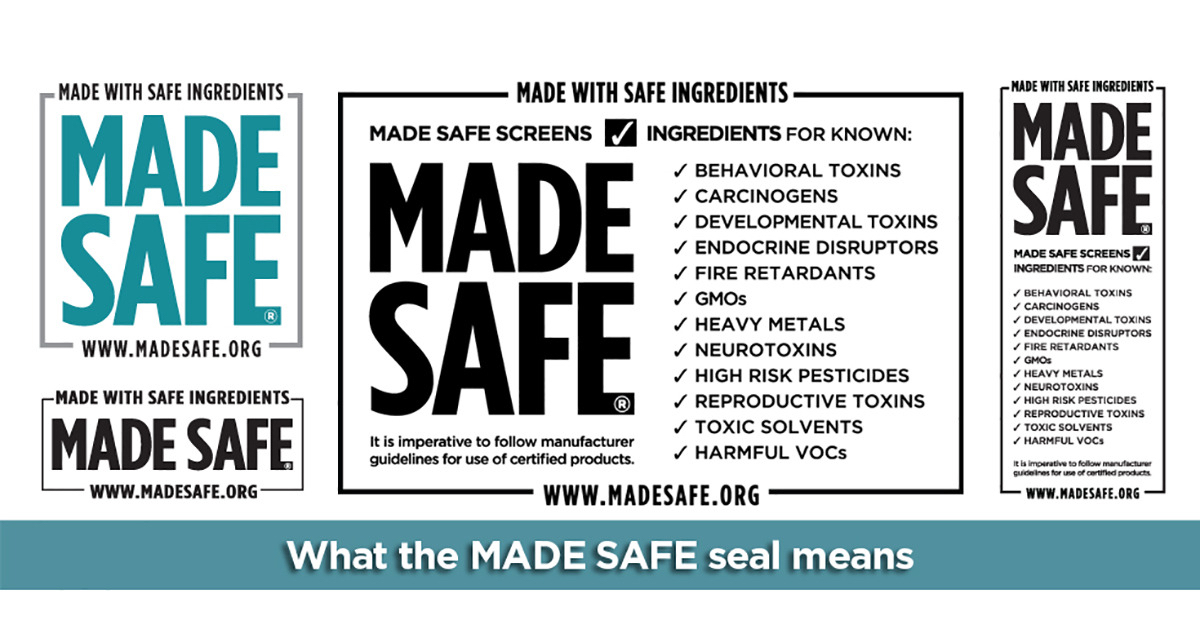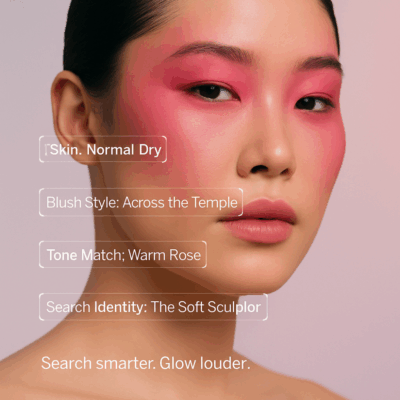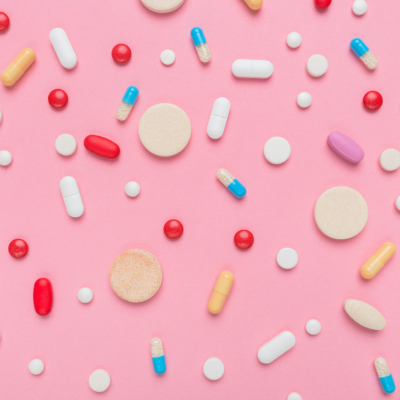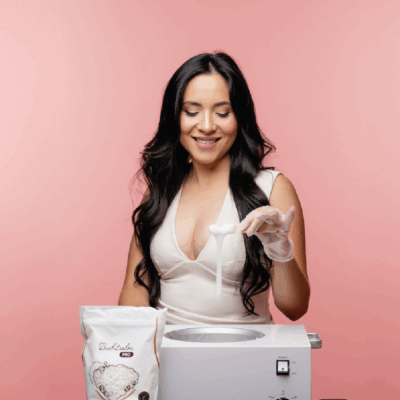
Indie Beauty Entrepreneurs Weigh In On Whether Certifications Really Matter
In this edition of Beauty Independent’s ongoing series posing questions to beauty entrepreneurs, we ask 15 founders and executives: What certifications does your brand have, and have they impacted sales?
- RACHEL LAMBO CEO and Co-Founder, Sade Baron
I wanted to ensure that customers trusted us and our claims, which are backed by a governing body, so we decided to go through the process of PETA Cruelty-Free, Vegan and Leaping Bunny certifications. For me, it has been beneficial and helpful to customers to identify products with those credentials. There are several other certifications that I am considering in the future such as B Corp and Ecocert.
- Dr. Jennifer Edwards Creator and Chemist, Refinne
Our labs are FDA-registered and CGMP-certified. This absolutely strengthens the trust we have with our customers. While there’s a place for kitchen-made beauty products, and I love a good local farmer’s market, we have grown and serve too many women to not have strict standards for production and cleanliness in place. Safety is our first priority and, of course, from this will come sales.
- Anne Cheatham Co-Founder and CFO, Nuele
In a world of beauty products that pose as natural and organic while continuing to use synthetic ingredients, we find it important to highlight the superiority in the quality of our serum. We started by looking for a certification partner that would help validate this key difference in our Hair Serum, and this is why we identified Made Safe as a critical partner.
Made Safe goes beyond generic claims like natural, eco, clean, green, paraben-free and BPA-free by investigating every single ingredient and sub-ingredient in a product. People should be confident that the products they use will not be harmful to themselves and their families. Since being certified by Made Safe, we have experienced a boost in first-time sales.
- Yanghee Paik Co-Founder, Rael
We have OCS 100 (Organic Content Standard) certification for the organic cotton used in our pads and tampons. We decided to get this because it was effective in highlighting the quality of our ingredients and giving assurance to consumers that our products are free of pesticides, chlorine and fragrance.
As a new brand who needed to educate consumers about the harsh chemicals in conventional pads and tampons, it was important that we source the cleanest organic cotton on the market and are very transparent about our ingredients. The great thing about OCS 100 is that they do a thorough monitoring and verification of the processing, manufacturing, packaging, labeling, trading and distribution of the materials when authorizing the certification. Having this has been impactful for us to grow as a trusted brand and promote our core values, which include quality and transparency.
- CAMILLE OBADIA President, Camille Obadia
I have the USDA Organic [certification] for my organic skincare products. It is important for the U.S. market. It helped sales since people recognize this certification in the U.S. market.
- Melinda Chenault-Herron Founder, 103 Collection
We have been MBE (Minority-Owned Black Enterprise) and MWBE (Women Minority Black Enterprise) certified since 2019. We chose these certifications once we decided that we wanted to be in certain retailers, and this was a requirement for minority-owned businesses. Due to the current state of the world and Black culture, the certification is definitely catching consumers attention and has given us a boost in visibility.
- MAX OBERLOHER CEO, Niche Beauty Lab
There are now so many companies who certify something. Sometimes it seems like companies "invent" more certificates every day, and it does not seem to be driven by consumers' need for better quality products. It is always good to have standards and, then, it is important to understand that standards are, in most cases, just minimum requirements. At the end, what a brand spends on certifications will be paid by the consumer. And this is what we believe is unfair. If every brand would just develop the best possible formulations, there would not be any need for certifications.
When we founded our business, we used certifications because we thought this is another USP [unique selling proposition]. However, we then actually asked our customers and, for them, the certificate on a product was not really the main reason for the purchase. So, we decided to keep the standards for certain certifications as they were already in place anyway, but not to pay for the logo. For us, it was a win-win situation because customers kept buying our products, and we could even offer them at a cheaper price as we saved the cost of certificates, which, at the end, made us sell even more.
- Sara Kyurkchieva Founder, Orpheus Skin
We are in the process of applying for ECOCERT certification, which fully transmits our dedication to sustainably-sourced clean bioactives and environmentally-friendly manufacturing processes. Purity is at the heart of what we do, and we’re proudly going above and beyond what it means to be clean. We ban over 5,000 known toxic ingredients and our formulas far exceed the European standards of safety.
The ECOCERT certification is proof of that and will build additional trust in the brand that all the raw materials in our formulas are completely void of toxins and safe for the skin. Our proprietary Orpheus Flower Cell Peptide Complex is sustainably bioengineered using innovative non-toxic biotechnology and plant stem cell science without a drop of synthetic ingredients or harsh preservatives. We believe ECOCERT will positively impact our transparency, authenticity and credibility.
From a sales perspective, what makes a huge difference is our state-of-art research methods and rigorous third-party testing of our products to prove their high-efficacy regenerating power. Our mission is to create pure, sustainable, youth-restoring skincare that really works, so we test each and every product before they hit the market. That’s what really has an impact on the purchase decision.
- MARY-ANDRÉE ARDOUIN-GUERRIER Founder and CEO, Loving Culture
Having the USDA certification was a big priority because of the level of standards and integrity that went into making our staple product. I felt as though it provided additional affirmation. It has helped with sales among certain customers who value transparency and integrity. The same can be said with our Leaping Bunny certification.
- Michael CANEPA Co-Founder, Kidskin
Because we fill our own product we decided to become an FDA registered facility. It lets our partners or customers know that we are following all government guidelines for health and safety, especially during these times. There is a certification we are working on right now that we believe will help us get more into the retail space. We are a minority business, and more than 50% of our shares are owned by women.
- Paayal Mahajan Founder, Essential Body Couture Skincare
I am a licensed cosmetic manufacturer, and bound by laws when it comes to my lab and my entire set-up. I follow European guidelines for labelling and stay away from greenwashing. To me, transparency when labelling and making sound ingredient choices is far more important than throwing up a symbol on my website.
My customers value my transparency. Not all my ingredients are organic and, when they are, it is reflected clearly on the label. I have a degree in environmental policy, so I actually know what it takes to create an organic farm, to actually source ingredients organically, and that organic does not automatically mean sustainable. There is a difference. The truth is people are tired of being oversold lofty promises. They are tired of hearing tall claims and fluff.
- Kim Wileman CEO, as|if by Nassif and Cobuna Brands
We have what we call our as|if by Nassif “Free Of” promise, which means you will never find ingredients such as phthalates, mineral oil, lanolin, formaldehyde and parabens in our skincare products, and we never test on animals. It’s important to our customers that our formulas are healthy and effective. The consumer expects all products to be cruelty-free. It’s always surprising to me when brands do not call this out as this should be a standard in the beauty industry.
- Aleena Khan Co-Founder, CTZN Cosmetics
Our manufacturers have certified that all of our products are made cruelty-free, under strict E.U. compliance, and either vegan or vegetarian. We chose to do this because we personally have a zero tolerance policy for animal testing, and we know that a significant percentage of beauty consumers are searching for cosmetics with no animal byproducts, so we kept that in mind while developing our brand.
In terms of sales, we receive quite a few messages on social media from consumers who want to double check that a product is either cruelty-free or vegan/vegetarian. So, we cannot confirm that it directly increases sales, but it definitely attracts the consumer even more towards our brand.
- Trista Okel CEO and Founder, Empower BodyCare
Because hemp/CBD is not regulated like many other products, there is rampant inconsistency on the market. Reputable retailers and manufacturers make certificates of analysis available so consumers can trust the quality of the products as verified by an independent lab.
We test every batch for a number of impurities that other companies don’t test for: pesticides, solvents, heavy metals and microbiological activity, which includes, yeast, mold, and other toxins you don’t want in the products you put on your skin. Our customers appreciate this extra step, which has built brand loyalty as well as our reputation for quality, so much that we actively tout this differentiator in our marketing.
Our CBD is sourced from organically grown hemp in Oregon. This is important because hemp is a bioaccumulator, meaning it has the remarkable ability to "clean" soil, pulling toxins and heavy metals from the soil where it grows. This is precisely why hemp benefits from being grown in organic soil. When CBD is extracted from hemp, any impurities the plant has picked up in the soil are concentrated in the CBD extract.
- Sarah Belzer President, COCONU
We were the first company to produce a USDA-certified organic coconut oil-based lubricant. All of our formulations uphold the same quality standards of the food we put into our bodies: 100% natural, 100% cruelty-free and 100% edible. Our conscious customers turned tens of thousands of raving fans have validated our decision to choose USDA certification.
Others claim "natural" and/or "organic," but they do not go to the lengths required to create a product that will pass the USDA certification. Products that do not have the USDA organic seal are not organic.
Being able to provide personal care products that are free from genetically modified organisms, alcohol, petroleum, parabens, gluten, phthalates, fragrances and dyes means we can accomplish our mission to provide safe, effective, natural products to people who care about keeping their bodies clean and free from toxic chemicals.
If you have a question you’d like Beauty Independent to ask beauty entrepreneurs, please send it to editor@beautyindependent.com.






Leave a Reply
You must be logged in to post a comment.